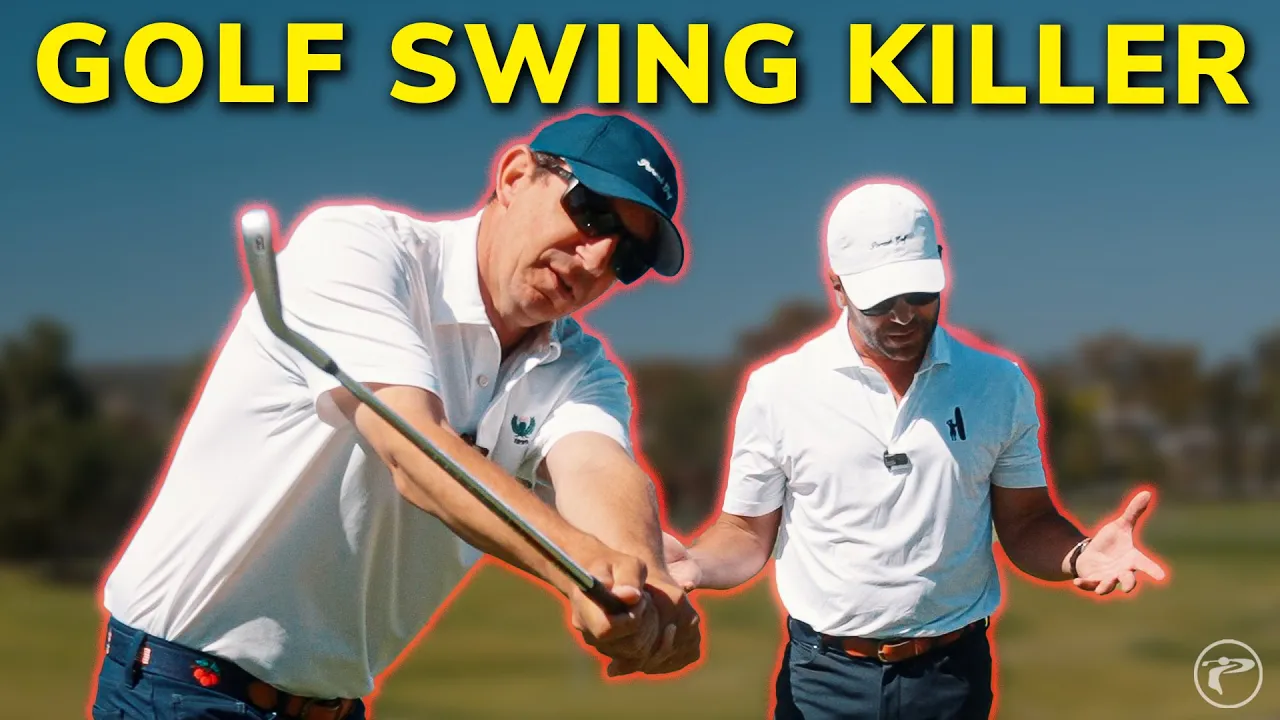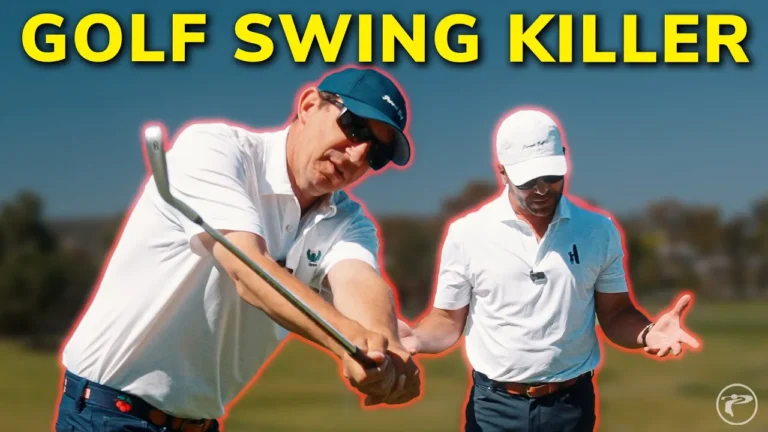
Mastering the takeaway in golf can transform your swing and boost your performance. In this guide, we’ll delve into common takeaway mistakes and provide simple, actionable tips to enhance your swing right from the first movement.
Table of Contents
- Understanding the Importance of the Takeaway
- Hands and Body Turn: Key Connection
- Mastering the Hinge
- Keeping Hands Low
- Shoulder Movement in Hinging
- Visualizing the Club Path
- Connection and Width in Your Swing
- Real-Life Success Stories
- Rotation and Release Dynamics
- Full Swing Master Class
Understanding the Importance of the Takeaway
The takeaway is the starting point of your swing, crucial for setting up a successful follow-through. A proper takeaway ensures your swing is aligned with your body, influencing both power and accuracy. Neglecting this can negatively impact your entire swing.
Common Mistakes in the Takeaway
Avoid these frequent errors:
- Hands Moving Too Far Out: This leads to a disconnected swing; keep hands close.
- Starting with the Arms: Initiate with the body turn, not just the arms, for better power.
- Not Hinging the Wrists: Correct wrist hinge is crucial for avoiding an inside takeaway.
Hands and Body Turn: Key Connection
The synergy between your hands and body during the takeaway is foundational. Your hands should mirror your shoulder turn, maintaining a smooth and consistent swing.
The Perfect Hand Path
A correct hand path is essential: hands should follow a straight path along your feet, ensuring a powerful downswing setup.
Mastering the Hinge
Proper wrist hinging is vital. It affects the club’s position and your swing path. Use your lead shoulder to guide your hands, ensuring correct leverage and club position.
Correcting an Inside Takeaway
To eliminate an inside takeaway, focus on:
- Implementing a proper wrist hinge.
- Reassessing your setup position.
- Practicing the correct path slowly.
Keeping Hands Low
Maintaining hand position below the club head during takeaway aids in keeping a smooth transition and supporting a natural body turn.
Shoulder Movement in Hinging
Optimal shoulder movement facilitates correct hinging. Your lead shoulder should guide your hands, creating a synchronized motion.
Engaging Your Shoulders
Steps for proper shoulder engagement:
- Start with an athletic posture.
- Use the lead shoulder to guide backward movement.
- Ensure connection with your body’s turn.
Visualizing the Club Path
Visualizing the club’s path is key. Imagine the club moving along an aligned path, supporting your natural body rotation.
Enhancing Visualization
Boost visualization by:
- Practicing in front of a mirror.
- Imagining the path during warm-ups.
- Breaking down your swing into parts.
Connection and Width in Your Swing
Maintaining connection and promoting width in the swing enhances power and control. Extend arms with shoulder rotation for an effective swing arc.
Tips for Connection and Width
- Use an appropriate grip to enhance control.
- Place a towel under armpits during practice.
- Emphasize a full shoulder turn.
Real-Life Success Stories
Golfers worldwide have improved their game by focusing on the takeaway, leading to personal bests and competitive clean sweeps. Their stories prove the power of mastering this element.
Inspiring Golfers
- Beginners: Achieve consistency and reduced scores with proper techniques.
- From Challenges to Triumphs: Solve chronic issues for straighter shots.
- Gain Competitive Edge: Improve performance by refining mechanics.
Rotation and Release Dynamics
Proper body rotation sets up a cohesive swing, enhancing release and allowing natural power generation.
Optimizing Rotation and Release
- Strengthen the core for robust rotation.
- Execute slow, thoughtful practice swings.
- Visualize the release for smoother mechanics.
Full Swing Master Class
Join our Full Swing Master Class to elevate your game. With tailored instructions, improve your swing mechanics effortlessly and experience the transformation today.


0 Comments